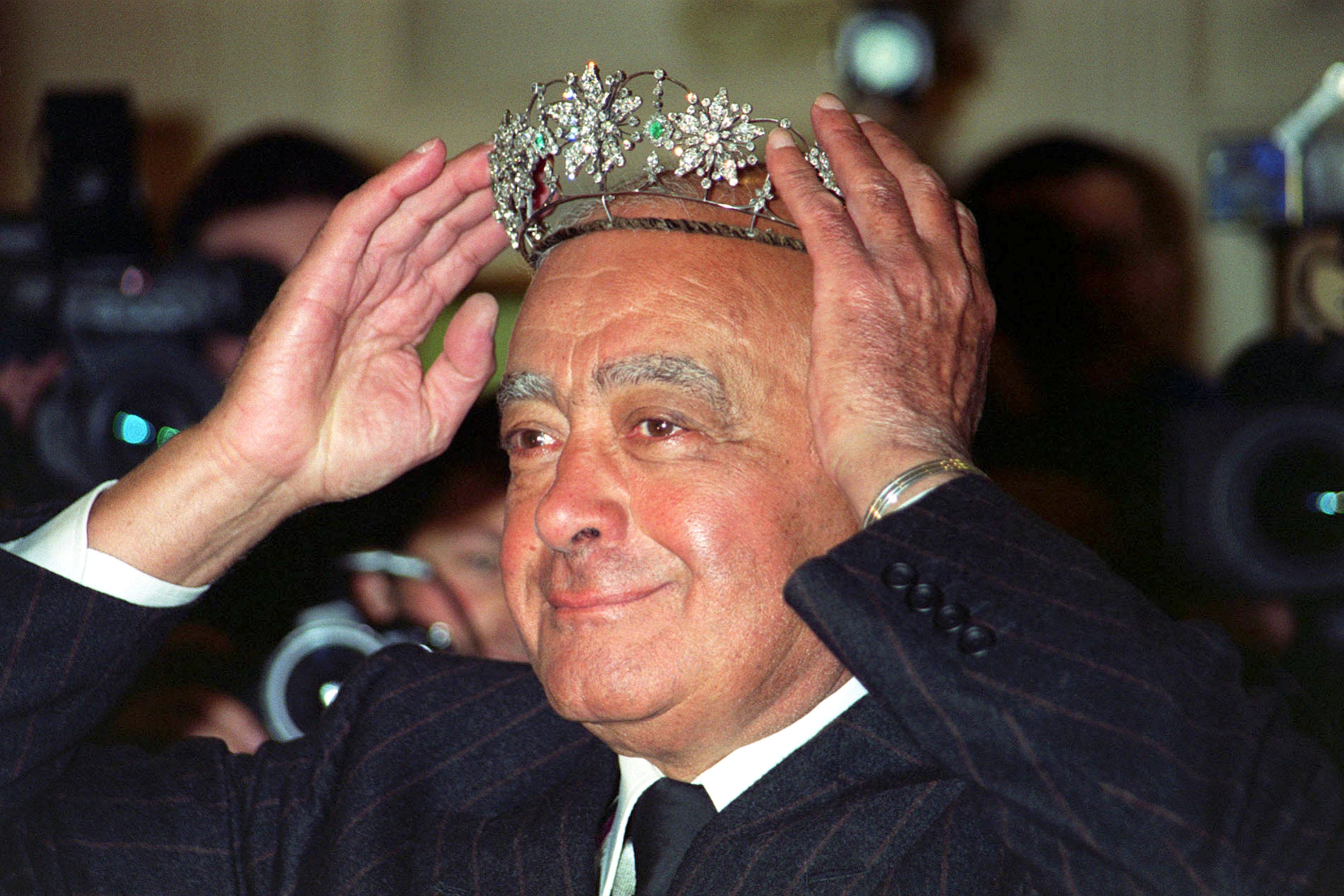‘Some people never forgive Al Fayed for buying their favourite store, Harrods’
The Egyptian-born businessman who took control of the luxury Knightsbridge department store in 1985, has died aged 94.

Your support helps us to tell the story
From reproductive rights to climate change to Big Tech, The Independent is on the ground when the story is developing. Whether it's investigating the financials of Elon Musk's pro-Trump PAC or producing our latest documentary, 'The A Word', which shines a light on the American women fighting for reproductive rights, we know how important it is to parse out the facts from the messaging.
At such a critical moment in US history, we need reporters on the ground. Your donation allows us to keep sending journalists to speak to both sides of the story.
The Independent is trusted by Americans across the entire political spectrum. And unlike many other quality news outlets, we choose not to lock Americans out of our reporting and analysis with paywalls. We believe quality journalism should be available to everyone, paid for by those who can afford it.
Your support makes all the difference.A former spokesperson for Mohamed Al Fayed has said “some people could never forgive” the late businessman for buying Harrods.
The Egyptian-born businessman took control of the luxury Knightsbridge department store in 1985.
Mr Al Fayed, who sold the London landmark to Qatar’s royal family for a reported £1.5 billion in 2010, died at the age of 94 on Wednesday.
Michael Cole, a former journalist who worked as director of public affairs for Harrods, was asked on Times Radio on Saturday about reports that the former chairman of Fulham Football Club could be temperamental and misogynistic.
Mr Cole said: “I can tell you that I never heard him raise his voice and I’ve never heard him use profane language… No, I think (he wasn’t a misogynist)
“I mean, he loved his wife, he loved the children, his store would mainly cater to women.
“I mean, he was never happier, going down to the trade counter, and slicing off some salami for some of his customers and talking to them.
“The fact is that if you talk to the people who actually knew him, who worked for him, who were his customers, they have a completely different view from people who sit in ivory towers and take pot-shots at him.
“He was, of course, larger than life… he did it with great deal of style, a great deal of humour. He was not self-important. He didn’t fit into the British establishment.
“And I think some people could never forgive an Egyptian for having bought their favourite store in Brompton Road, Harrods.”
Channel 4 News ran a 2018 documentary accusing Mr Al Fayed of grooming and sexually harassing ex-Harrods employees.
Born in Alexandria, he came to London in the 1960s.
When his son, Dodi, died in the same Paris car crash in August 1997 as Diana, Princess of Wales, Mr Al Fayed spent the next decade repeatedly claiming they were murdered in a plot by the security services and the Duke of Edinburgh.
However, he was forced to reluctantly concede defeat after a high-profile six-month inquest in 2007 and 2008.
The jury returned unlawful killing verdicts on both Diana and Dodi, but pinned the blame on the drink-driving of their chauffeur Henri Paul, who also died in the crash and was employed by the Paris Ritz hotel. Mr Al Fayed had purchased the hotel in 1979.
Mr Cole said: “He actually died on Wednesday, which is the day before the 26th anniversary of the terrible death of his son… and he was entombed next to his son in a mausoleum yesterday.
“A lot of people who work for him and his customers and the fans of his football club got to know the real Mohammed and he was a very open hearted and very kind and very generous person in more ways than I (could) probably number.
“He did more good in the world than all his critics roll together and I’m very sorry that he’s dead because he was a life enhancing figure and he tremendously supported this country. He believed in it. He brought a lot of wealth here and he worked tirelessly for it.”
He made large charity donations to the Great Ormond Street Hospital for Children and invited patients to help switch on his store’s Christmas lights and meet celebrities.
Mr Al Fayed made his first application for British citizenship in 1993 and in 1999, weeks after his brother Ali was granted British citizenship, but was declared unfit to hold a British passport by then-home secretary Jack Straw.
The businessman appealed against the decision but Lords Justice Nourse, Kennedy and Rix dismissed his claim that Mr Straw had been biased when he refused the application.